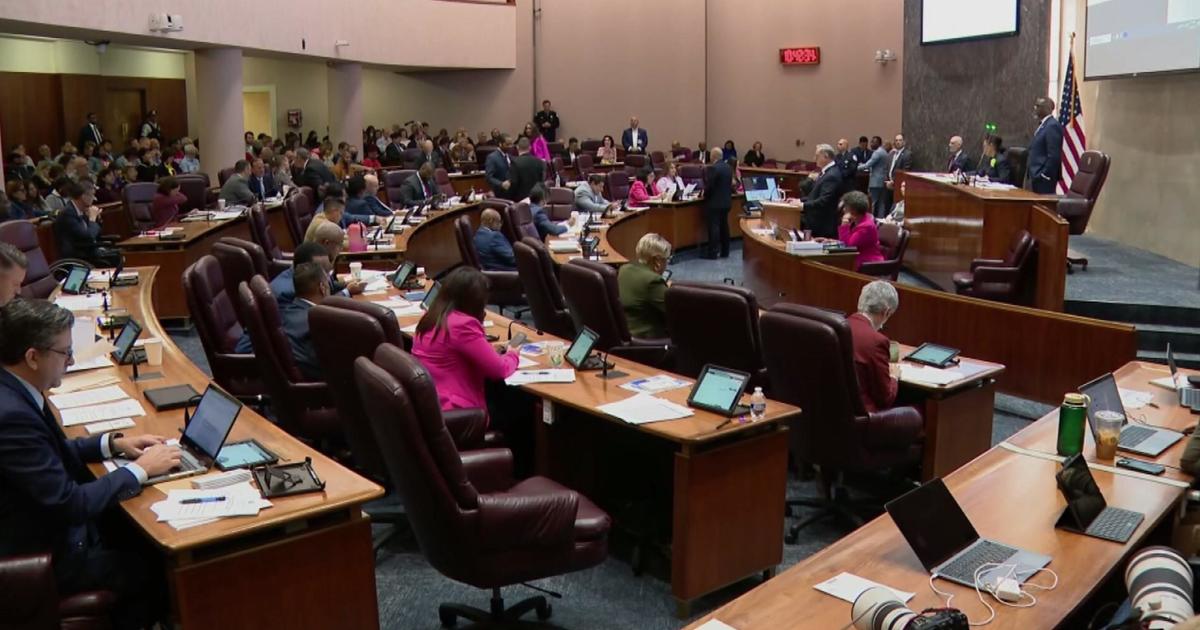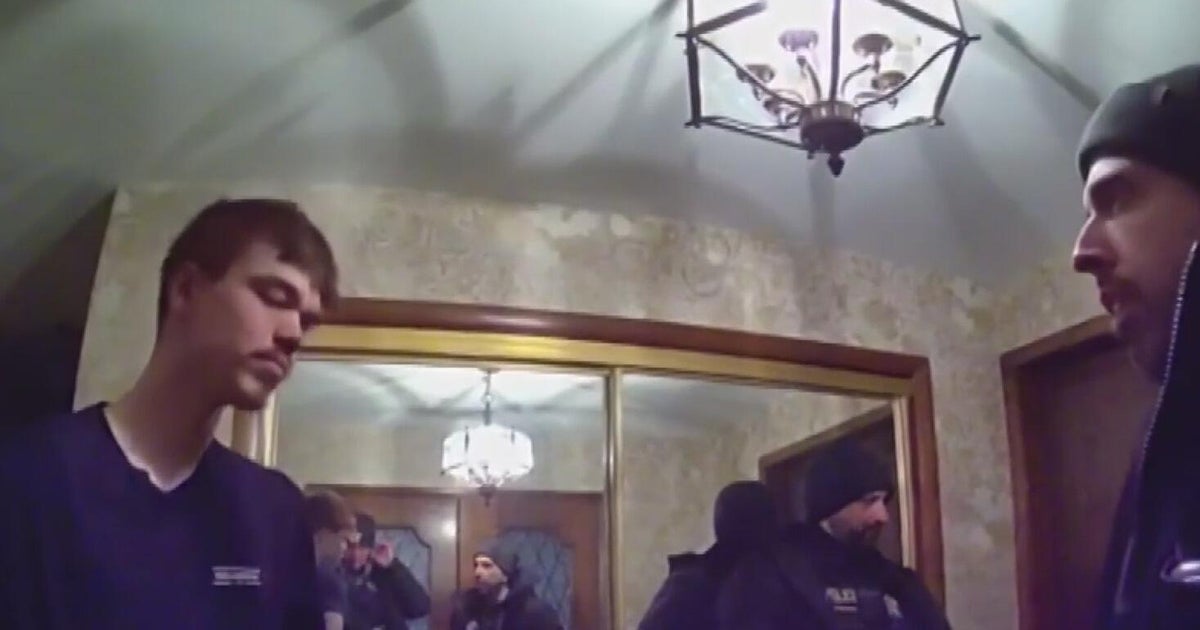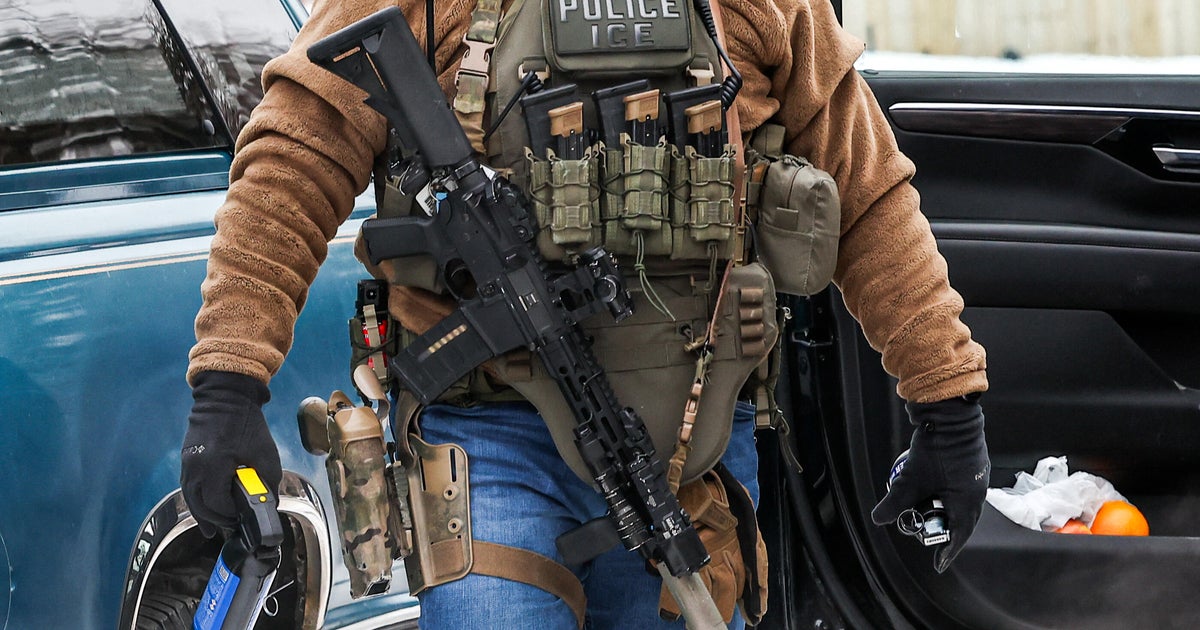Breakthrough In DNA Collection Leads To Murder Conviction
HOPKINS, Minn. (WCCO) -- A convicted murderer likely thought he did everything right to keep from getting caught except he left behind microscopic cells on his victim's body.
The murder victim, Irene Kunze, never had a chance.
This gentle, trusting woman who was active in her church and devoted to her family was murdered in the summer of 2008.
Her daughter, Rena St. Cyr, called 911 after finding her mother dead in her Hopkins apartment three years ago.
"I went halfway down the hallway and I found her in her bedroom," St. Cyr recalled.
Kunze had been stabbed to death with a kitchen knife and then dragged between rooms.
"I remember that feeling so well. I just couldn't believe what I was seeing," St. Cyr said.
Hopkins Police initially responded to the scene. The Hennepin County Sheriff's Office followed.
"Why would somebody do this to a 90-year-old lady?" said Hennepin County Sgt. Steve Labatt.
When Labatt got to the ransacked apartment, he realized there wasn't much evidence to collect, except for Kunze herself.
"We're brainstorming ideas, talking things out loud. Who's going to do what; looking at Irene's body and her position. And the idea comes up, 'Let's swab her body,'" Labatt said.
Labatt had used this same technique before by swabbing evidence in property crimes for microscopic skin cells that suspect's shed at crime scenes.
But investigators had never swabbed for shed skin cells on a person. Labatt was going to take a chance.
"Just imagined grabbing somebody's hands to drag them from head first down a hall. How would you hold those hands? How would you hold those wrists?" Labatt said.
Crime scene technicians went to work in the field swabbing for evidence much like they do in the lab. Authorities swabbed Lunze's hands, wrists, elbows, the back of her knees and ankles.
"When we collect DNA samples, either from the victim or from the crime scene or pieces of evidence, the genetic profile is analyzed here," said Hennepin County Sheriff Rich Stanek, inside the county's crime lab.
Skins cells collected from Kunze's left elbow yielded someone else's DNA, which was a major break in this case.
Forensic scientists compared that sample to some DNA samples Hopkins Police obtained from persons of interest.
They got their match: Corey Posley-Wells, a convicted felon who was recently released from prison after an armed robbery conviction.
But there was still one problem. Police knew Posley-Wells was at the complex the day of the crime but they still needed to place him in Kunze's apartment.
Hopkins Police brought Posley-Wells in for questioning, hoping he'd confess.
During the interview, he told detectives he wanted money. He told them he saw Kunze taking out the trash and thought she looked like a good target.
Posley-Wells told police he pushed open her apartment door, she fell and he attacked her.
"I told her, I said, 'I'm sorry, but I can't fight these voices in my head.' I said, 'I can't. I can't fight the drug,'" Posley-Wells said, during the police interview.
Investigators now had enough evidence to bring to the Hennepin County Attorney.
He was charged and convicted of first-degree murder and is now serving a life sentence in prison.
Posley-Wells is also the first murder suspect convicted in Minnesota as a result of Touch-DNA evidence -- those tiny cells he left behind on Kunze's elbow. It's evidence Labatt thought to collect at the murder scene.
"I would call it a breakthrough," Labatt said.
Labatt now teaches other police officers statewide about this case, hoping they can use Touch-DNA to solve more violent crimes in Minnesota.
"And other crimes can be solved in the future, because of this one being a groundbreaking case. That feels good to us," St. Cyr said.
It's the only comfort she feels from her mother's murder that July night.
She was the woman who loved her grandchildren and hoped to make the world a better place.







